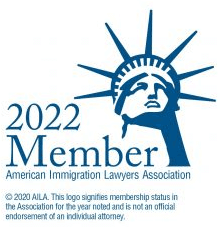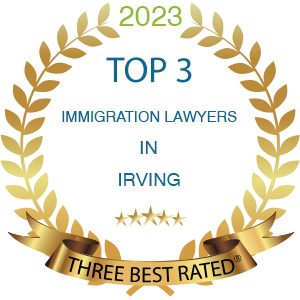
Office Location is Irving, Texas and Albuquerque, New Mexico
Call 214-609-2242
Recent Blog Posts
Tips for Preparing for Your Immigration Court Date
 Facing an immigration court date can be an anxiety-inducing experience for many individuals. However, proper preparation is crucial and can significantly impact the outcome of the case. A Texas lawyer can provide you with valuable tips to help you navigate the immigration court process.
Facing an immigration court date can be an anxiety-inducing experience for many individuals. However, proper preparation is crucial and can significantly impact the outcome of the case. A Texas lawyer can provide you with valuable tips to help you navigate the immigration court process.
Know Your Rights and Responsibilities
Before your court date, familiarize yourself with your rights and responsibilities as an immigrant in Texas. Understand the specific laws and regulations that govern your case and be aware of the potential consequences of your actions. Knowledge is power, and understanding the legal aspects can help you make informed decisions.
Gather and Organize Your Documents
Immigration courts rely heavily on documentation to support your case. Gather all relevant documents, such as birth certificates, marriage certificates, employment records, and any other evidence that supports your eligibility for immigration relief. Organize these documents in a logical and easily accessible manner, making it easier for you and your attorney to present them during the hearing.
Legal Strategies for Overcoming Visa Denials
 Dealing with a visa denial can be a challenging and emotionally taxing experience for anyone hoping to enter the United States. However, it is important to recognize that denial does not necessarily mean the end of your journey. A Texas lawyer can help you explore various legal options to potentially overcome a visa denial.
Dealing with a visa denial can be a challenging and emotionally taxing experience for anyone hoping to enter the United States. However, it is important to recognize that denial does not necessarily mean the end of your journey. A Texas lawyer can help you explore various legal options to potentially overcome a visa denial.
Make Sure You Understand the Reason(s) for Denial
The initial step to address a visa denial is comprehending the rationale behind it. The U.S. Citizenship and Immigration Services (USCIS) issues a written explanation for the denial, aiding you and your lawyer in deciding the next steps. Visa denials commonly stem from inadequate documentation, not fulfilling eligibility criteria or doubts regarding the applicant’s intention to return to their home country.
Overcoming Deportation Challenges in Texas
 For many immigrants living in Texas, the threat of deportation is devastating. Whether due to visa overstays, criminal convictions, or other issues, facing removal proceedings can be an incredibly stressful and daunting experience. However, with the right legal strategies, it may be possible to overcome these challenges and remain in the United States legally. A Texas lawyer can help review your situation and see what potential options you may have.
For many immigrants living in Texas, the threat of deportation is devastating. Whether due to visa overstays, criminal convictions, or other issues, facing removal proceedings can be an incredibly stressful and daunting experience. However, with the right legal strategies, it may be possible to overcome these challenges and remain in the United States legally. A Texas lawyer can help review your situation and see what potential options you may have.
Understanding the Grounds for Deportation
Before exploring potential defenses, it is crucial to understand the grounds for deportation under Texas law. The most common reasons include:
- Overstaying a visa or entering the country illegally
- Certain criminal convictions, even minor ones
- Security threats or terrorism concerns
Types of Visas Available for Foreign Students in Texas
 If you are an international student considering studying in Texas, one of the first steps in making your dream a reality is understanding the visa options available to you. Obtaining the appropriate visa is crucial for ensuring a smooth and legal transition into your life as a student in the United States, and a Texas lawyer can help you with the process.
If you are an international student considering studying in Texas, one of the first steps in making your dream a reality is understanding the visa options available to you. Obtaining the appropriate visa is crucial for ensuring a smooth and legal transition into your life as a student in the United States, and a Texas lawyer can help you with the process.
F-1 Student Visa
The F-1 visa is the most common student visa for those pursuing academic studies at an accredited U.S. college or university. To be eligible for an F-1 visa, you must be enrolled as a full-time student in a program that leads to a degree, diploma, or certificate. You will also need to demonstrate that you have sufficient financial resources to support yourself during your stay in the United States. When applying for an F-1 visa, provide:
- Evidence of your acceptance into a SEVP-approved school.
When to Seek Adjustment of Status
 Deciding whether to apply for a green card or change your immigration status can be a complicated decision with major consequences. A Texas immigration lawyer can help you break down key times when you may want to seek an adjustment of your immigration status and what steps you should take for your specific situation.
Deciding whether to apply for a green card or change your immigration status can be a complicated decision with major consequences. A Texas immigration lawyer can help you break down key times when you may want to seek an adjustment of your immigration status and what steps you should take for your specific situation.
Your Nonimmigrant Status is Expiring Soon
One of the most common reasons people apply for green cards or other immigration benefits is that their nonimmigrant status expires soon. For example, many people enter the U.S. on nonimmigrant work or student visas that temporarily allow them to live here. As the end date of the visa approaches, they may decide to seek lawful permanent resident status or another longer-term solution.
You Want to Change Employers
Those in the U.S. on employment-based visas are usually tied to the specific employer who sponsored their visa. If you want to change jobs or employers, your existing visa will no longer be valid. However, depending on your situation, you may qualify to change employers and transfer your visa. Or you may be eligible to change your status to a green card based on employer sponsorship. Consult an attorney before making any job changes as a foreign visa holder.
How to Get a U Visa as a Crime Victim
 If you have been the victim of a crime in the United States and cooperated with law enforcement in the investigation or prosecution, you may be eligible for a U visa. The U visa provides temporary legal status and work eligibility for victims of certain qualifying crimes who assist officials. A Texas immigration lawyer can help review your situation with you and see if you are a potential candidate for a U visa.
If you have been the victim of a crime in the United States and cooperated with law enforcement in the investigation or prosecution, you may be eligible for a U visa. The U visa provides temporary legal status and work eligibility for victims of certain qualifying crimes who assist officials. A Texas immigration lawyer can help review your situation with you and see if you are a potential candidate for a U visa.
What Crimes Qualify for a U Visa?
The category of crimes that qualify a victim for a U visa is broad. Some examples of criminal activity could include domestic violence, sexual assault, kidnapping, felonious assault, human trafficking, involuntary servitude, and others. The most essential requirement is that the crime violated U.S. laws and occurred in the United States or its territories.
Employment-Based Green Cards
 An employment-based green card allows foreign nationals to live and work permanently in the United States based on an offer of employment. However, only some are eligible to apply for this immigrant visa. Specific requirements regarding your employment, background, and relationship with the sponsoring U.S. employer exist. A Texas immigration lawyer can help determine if this is the best course of action for you and your situation.
An employment-based green card allows foreign nationals to live and work permanently in the United States based on an offer of employment. However, only some are eligible to apply for this immigrant visa. Specific requirements regarding your employment, background, and relationship with the sponsoring U.S. employer exist. A Texas immigration lawyer can help determine if this is the best course of action for you and your situation.
The Employer Requirements
The employer petitioning for your green card must be a U.S. employer, entity, corporation, or organization. They must demonstrate that they can pay the offered wage and comply with immigration laws.
Sponsoring employers must also show they are still looking for qualified, willing, and available U.S. workers for the offered position. They must test the labor market through advertising, campus recruiting, job fairs, etc. There are exceptions for Schedule A occupations with a shortage of qualified workers.
What Happens at a Bond Hearing for Removal?
 When a non-citizen is detained by immigration authorities and placed in removal proceedings, one of the first steps is often requesting a bond. A bond hearing allows the detained individual to argue for release while their immigration case proceeds. A Texas immigration lawyer can help you understand what to expect at a bond hearing in removal defense.
When a non-citizen is detained by immigration authorities and placed in removal proceedings, one of the first steps is often requesting a bond. A bond hearing allows the detained individual to argue for release while their immigration case proceeds. A Texas immigration lawyer can help you understand what to expect at a bond hearing in removal defense.
The Basics of Bond in Removal Proceedings
A bond is an amount of money set by a judge to allow for someone’s release while their immigration case moves forward. The bond ensures that the person shows up for future court dates instead of remaining jailed or in detention. Immigration judges have broad discretion in deciding bond amounts and eligibility. Factors considered include family ties, criminal history, flight risk potential, and danger to the community.
The Purpose of the Bond Hearing
A bond hearing allows the detainee’s attorney to argue for their client’s release on bond. The immigration judge presides over the hearing. They hear arguments from both the detainee’s lawyer and government attorneys. The judge questions both sides before making a custody determination. If a bond is granted, a monetary amount is set. This allows the detainee to get out while fighting their removal case.
What to Know About the E-2 Visa for Entrepreneurs
 The E-2 “treaty investor” visa provides an exciting opportunity for eligible entrepreneurs and investors to grow a business in the United States. This special visa allows recipients to live and work in America while actively developing and directing a genuine commercial enterprise. With options for indefinite renewals, the E-2 offers ambitious foreign business owners a pathway to long-term residency tied to the success of their ventures. An Illinois immigrant lawyer can help you apply for this visa.
The E-2 “treaty investor” visa provides an exciting opportunity for eligible entrepreneurs and investors to grow a business in the United States. This special visa allows recipients to live and work in America while actively developing and directing a genuine commercial enterprise. With options for indefinite renewals, the E-2 offers ambitious foreign business owners a pathway to long-term residency tied to the success of their ventures. An Illinois immigrant lawyer can help you apply for this visa.
What is the E-2 Visa?
The E-2 visa allows eligible entrepreneurs and investors from designated treaty countries to enter and remain in the U.S. for up to five years, with indefinite renewals possible. You must commit to developing and directing an actual operating commercial enterprise that meets substantial investment and job and revenue creation requirements. It is an excellent option for ambitious business owners seeking hands-on managerial control and long-term residency.
Can You Get Bond if You Are an Immigrant?
 Immigrants arrested on criminal charges often face additional hurdles in securing pretrial release. Language barriers, financial limitations, and immigration status issues compound standard release considerations. Uncertainty and anxiety heighten when detained far from family and friends. Gaining bond while fighting your criminal case is critical. So, can immigrants reasonably expect bonds? It can be less daunting with a Texas lawyer on your side.
Immigrants arrested on criminal charges often face additional hurdles in securing pretrial release. Language barriers, financial limitations, and immigration status issues compound standard release considerations. Uncertainty and anxiety heighten when detained far from family and friends. Gaining bond while fighting your criminal case is critical. So, can immigrants reasonably expect bonds? It can be less daunting with a Texas lawyer on your side.
Bond Eligibility Factors
Immigration status alone does not automatically determine whether or not you will get a bond. However, it may wrongly influence bond assumptions regarding flight risk and danger. Having an attorney present counterarguments minimizing such notions. Factors favoring immigrant bonds include:



















